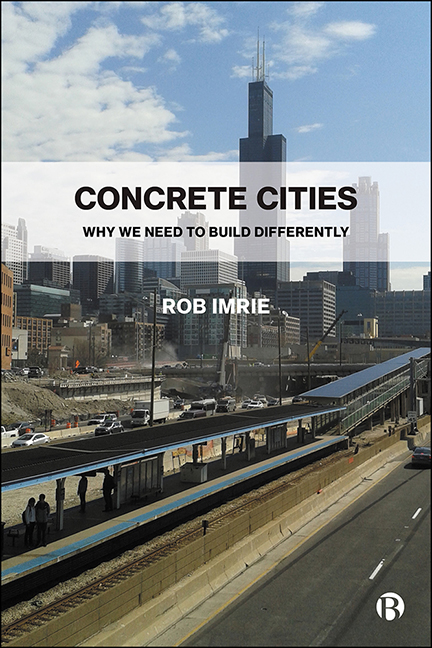Book contents
- Frontmatter
- Contents
- List of Figures
- About the Author
- Preface
- 1 Introduction: The Omnipresent Nature of Building
- 2 The Significance of Building and Construction
- 3 Building and the Construction State
- 4 Speculation and Building Booms
- 5 Disruption, Displacement and Dispossession
- 6 Demolition: Wasting the City and Teardown Building
- 7 Why Building More Housing Will Not Work
- 8 Building That Matters to People
- 9 Constructing for Species Survival
- 10 Building and Construction That Cares
- Notes
- References
- Index
1 - Introduction: The Omnipresent Nature of Building
Published online by Cambridge University Press: 30 April 2022
- Frontmatter
- Contents
- List of Figures
- About the Author
- Preface
- 1 Introduction: The Omnipresent Nature of Building
- 2 The Significance of Building and Construction
- 3 Building and the Construction State
- 4 Speculation and Building Booms
- 5 Disruption, Displacement and Dispossession
- 6 Demolition: Wasting the City and Teardown Building
- 7 Why Building More Housing Will Not Work
- 8 Building That Matters to People
- 9 Constructing for Species Survival
- 10 Building and Construction That Cares
- Notes
- References
- Index
Summary
In July 2015, I was based in Japan and had been spending most of my time working in Tokyo. While Tokyo is a spectacular city, it is the epitome of a concrete jungle and so an invitation by a colleague to visit the southern Japanese island of Kyushu seemed like the opportune time to experience some of Japan's green spaces. The train ride from Tokyo to the main city in Kyushu, Fukuoka, is 1,100 km and takes six hours to complete. The route traverses the populated south coast of Japan that, as was evident from my journey to Fukuoka, is dominated by a strip of major urban settlements. The views from the train's window were fleeting glimpses of urban Japan interspersed with ‘blackouts’ as the train rapidly entered and exited numerous tunnels. The experience was like looking through a kaleidoscope with a bewildering array of ‘quick-fire’ glimpses of buildings and urban infrastructure. There were rare sights of green spaces, though these were never without buildings in view. By the time I arrived in Fukuoka, I could have been forgiven for thinking that countryside does not exist in Japan.
My Japanese experience is illustrative of most of the contemporary world, in which the built environment is integral to our everyday lives and fundamental in influencing how we interact with one another and patterns of living and habitation. There are few places left untouched by the excavation of the earth's resources for construction and this, along with the combination of materials to create new structures, ranging widely from houses to roads, and dams to water pipelines, is the defining feature of people's domination of the planet. Wherever one goes, the sounds, sights and smells of construction are evident, and our environments are increasingly shaped by what often feels like a never-ending process of building. From the endless construction of domestic dwellings to the excavation of new roads and railways into frontier areas such as Western China and Amazonia, building work is omnipresent to the extent that it can be thought of as a formative process shaping contemporary economy and society.
- Type
- Chapter
- Information
- Concrete CitiesWhy We Need to Build Differently, pp. 1 - 11Publisher: Bristol University PressPrint publication year: 2021



